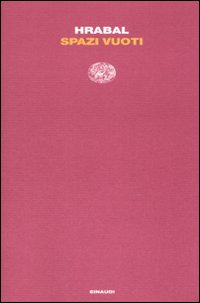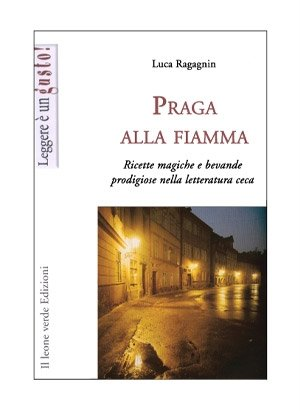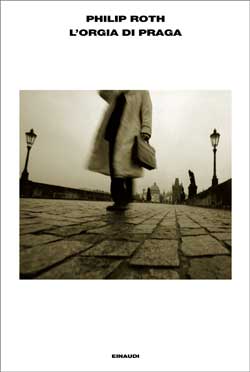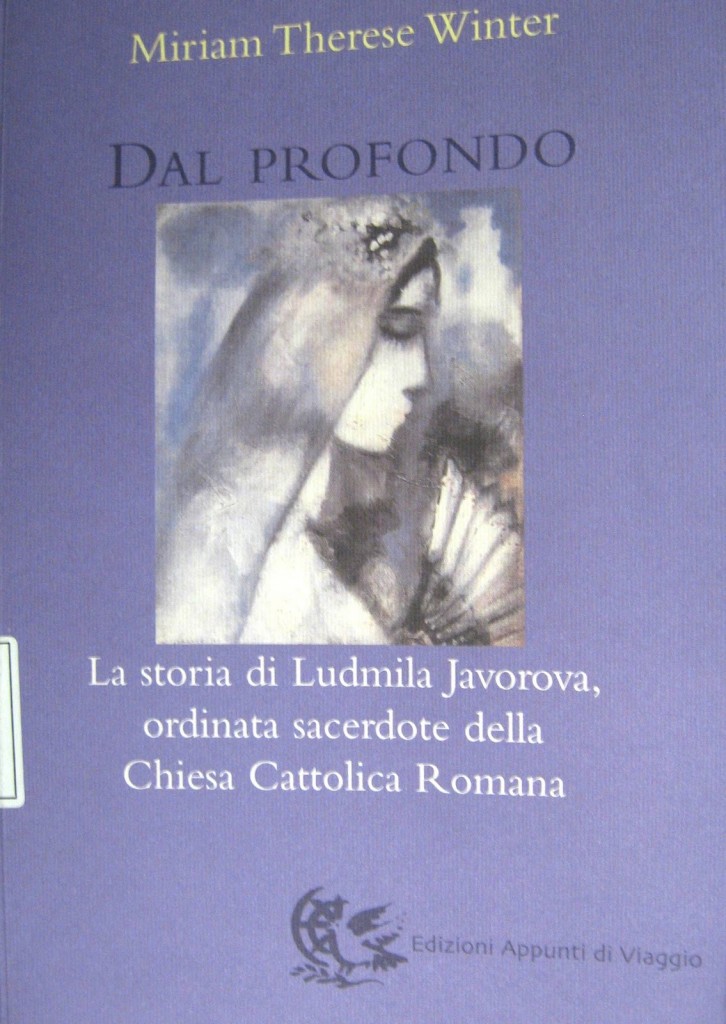Spazi vuoti (empty spaces) concludes the autobiographical trilogy by Bohumil Hrabal, started with “Le nozze in casa/House weddings”. This book, published for the first time in Czech language in 1986, through the voice of the author’s wife, Pipsi, recounts the years from 1963 to 1973, which led to the belated, exceptional literary success of the author and fervent activity, also witnessed the arrival of the Soviet tanks, the public burning of books, up to his the prohibition imposed on him that denied the possibility of publishing anything as a writer. Through the words of his wife, however , Hrabal was able to reveal himself by speaking of his cowardice, and weaknesses and also about his ambiguous relationship with power, the fear of passing time and his terror of ilness and death.

Bohumil Hrabal,
Spazi vuoti (tit. or.: Proluky, 1986),
Turin: Einaudi 2010,
pp. 226
This work by Luca Ragagnin, writer, poet and Italian lyricist, born in Turin in 1965, is a curious and fluent piece of writing, particularly suitable as a first, unusual and enjoyable approach to the rich and fascinating world of Czech literature and culture. Praga alla fiamma is half-way between literary anthology and culinary art. The author concisely describes 53 important personages of Czech literature, providing for each, a biographical note and quoting a literary fragment that is connected – either directly or indirectly – to food. In the second part of the book, other recipes, each dedicated to an author taken from Bohemian and Moravian gastronomy and, of course, to the number one Czech dish: the unfailing pivo!

Luca Ragagnin,
Praga alla fiamma. Magic recipes and prodigious drinks in Czech literature,
Il Leone Verde Edizioni: Torino 2007,
pp. 173
Philip Roth, United States wirter of Jewish origin, is considered by many as the pinnacle of contemporary American literature. This brief but compelling novel tells the story of Nathan Zuckerman, alter ego of the writer, on the trail of an unpublished manuscript of stories attributed to an Yiddish language martyr. The story takes place in Prague during the 1970s, when it was oppressed by Soviet occupation and by a paranoic and, at times, surreal totalitarianism, which tended towards the absolute control of everything and everybody. Against this background, the protagonist finds himself involved in a series of bizarre and paradoxical adventures, together with the oppressed intellectuals, who brilliantly and ironically describe the often grotesque everyday life of that period.

Philip Roth,
L’orgia di Praga (tit.or.: The Prague Orgy, 1985)
Turin: Einaudi 2006,
pp. 82
This book, written by Sister Miriam Therese Winter, translated from English and published in Italy for the first time in 2005 tells, through the testimonies of its protagonists, the true and almost unknown story of Ludmila Javorová, a 1932 contingent, born into a Catholic family from Brno, who in the 1970s, together with four or five others, was ordained priest by the Catholic Bishop Felix M. Davídek, in Brno, in what was then communist Czechoslovakia at the height of the “normalization” period, which controlled any form of political or religious activity. When in 1995, Ludmila makes her condition public and clearly expresses her determination di continue to celebrate mass, the Roman hierarchies find themselves faced with with a very thorny issue…

Miriam Therese Winter,
Out of the Depths: The Story of Ludmila Javorova Ordained Roman Catholic Priest
Rome: Travel notes, 2005
pp. 333




